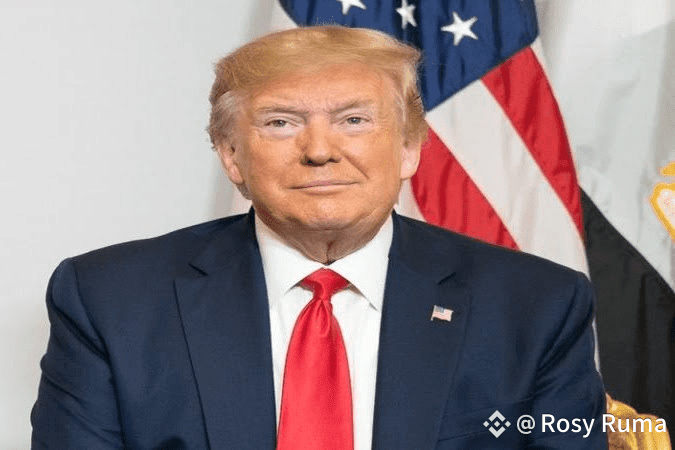 In an explosive report by DisInfo Lab, a controversial crypto deal has come to light, revealing alarming connections between Pakistan’s military-linked funds and the #TRUMP family's crypto venture, World Liberty Financial (WLF). This arrangement has raised serious questions regarding money laundering, terrorism financing, and global geopolitical shifts.
In an explosive report by DisInfo Lab, a controversial crypto deal has come to light, revealing alarming connections between Pakistan’s military-linked funds and the #TRUMP family's crypto venture, World Liberty Financial (WLF). This arrangement has raised serious questions regarding money laundering, terrorism financing, and global geopolitical shifts.
The Key Players and the Deal
The Pakistan-WLF deal, signed on April 26, 2025, has become a flashpoint in the ongoing diplomatic tension between India and Pakistan. At the heart of the deal is Bilal bin Saqib, a British-Pakistani entrepreneur with an extensive network of connections both in the crypto world and Pakistan's political landscape. Bilal serves as CEO of the Pakistan Crypto Council (PCC) and Special Assistant to the Prime Minister on Blockchain.
But here's the twist: Bilal is also a key advisor to World Liberty Financial (WLF), the crypto business backed by the Trump family—Eric Trump, Donald Trump Jr., and Jared Kushner each hold stakes in WLF, with Donald Trump himself listed as a "co-founder emeritus."
This dual role of Bilal places him at the very intersection of Pakistan's crypto ambitions and the Trump family’s financial interests in Washington—a deeply entangled relationship that raises serious questions about its impact on international financial integrity.
The Crypto Nexus: A Dangerous Game of Evasion
The disruption caused by this partnership doesn’t stop at the Pakistani border. The report alleges that the deal has enabled Russia’s sanctions evasion through crypto transactions, specifically involving the A7A5 stablecoin, a rouble-pegged digital asset that has reportedly moved billions in a short period.
Binance, the world’s largest crypto exchange, is another major player in this shadowy deal. Despite claiming to sever ties with China, Binance’s founder, Changpeng Zhao (CZ), is said to have deep-rooted connections in China, leading to further allegations that Binance has been instrumental in facilitating illicit financial flows—including funds funneled to terrorist organizations like Hamas, ISIS, and al-Qaeda.
In November 2023, the US Department of Justice imposed a record $4.3 billion fine on Binance, exposing its role in laundering money for terror groups, violating sanctions on Iran, and failing to adhere to anti-money laundering protocols. Despite these allegations, CZ continues to play a significant role in the global crypto scene—and now, in Pakistan’s crypto diplomacy.
Bilal’s Murky Network
The connections don’t stop with Binance or the Trump family. Bilal bin Saqib himself is under scrutiny for his web of questionable business ventures. Many of the companies associated with him show no transparency, operating from the same address with no active websites, raising suspicions that these could be shell companies designed to obscure financial dealings.
Moreover, Bilal’s sister, Minahil, owns a significant stake in Tayaba UK, a company that partners with Al Mustafa Trust (AMT)—an organization believed to be a military slush fund used by retired Pakistani military officers. AMT is allegedly involved in terror financing, further complicating Bilal’s already murky business dealings.
Geopolitical Ramifications: A New Axis of Power
Since the formalization of this crypto deal in May 2025, Washington and Islamabad have experienced a notable warming of ties. Pakistan's Army Chief Asim Munir has visited the US twice in a span of two months, and bilateral agreements have been signed. In an almost symbolic move, Pakistan even nominated Donald Trump for the Nobel Peace Prize, further blurring the lines between political diplomacy and business interests.
This crypto alliance has sparked concerns about the ethical implications of such ties, especially when the key players include a convicted crypto mogul, a controversial political family, and Pakistan’s military elite. This unholy alliance raises pressing questions about the role of crypto networks in international diplomacy and financial systems.
Conclusion: The Dark Side of Crypto Diplomacy
The revelations surrounding the Pakistan-WLF crypto deal represent a chilling glimpse into the murky world of crypto diplomacy, where financial gain intersects with global political maneuvering. With connections to terrorist financing, money laundering, and international sanctions evasion, this deal represents the dark side of an otherwise innovative financial ecosystem.
As the crypto world continues to evolve, the Pakistan-Trump family venture nexus serves as a reminder of the potential risks that come with the unregulated nature of digital currencies—and the dangerous alliances that can form in the shadows of global politics.
⚠️ Crypto may promise freedom, but it’s clear that without oversight, it can also fuel illicit activity and undermine the very financial systems designed to maintain global order.
👉 Follow me for more latest updates and insights 👍
Thankyou 🙏